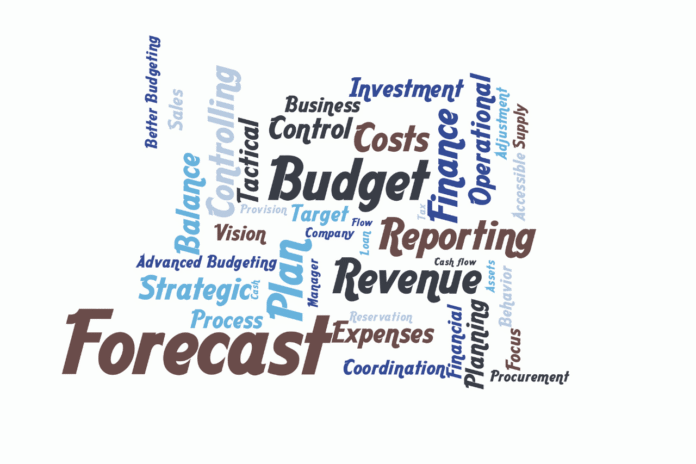When it comes to managing your business finances, both budgeting and financial forecasting are essential tools. But while they often go hand in hand, they serve different purposes and one can be a more powerful growth strategy than the other.
So, what’s the difference between a budget and a forecast? And which should your business prioritize?
In this guide, we’ll break down the differences between budgeting and forecasting, why financial forecasting is more strategic, and how small businesses can use both tools to stay financially healthy and plan for long-term success.
What Is a Business Budget?
A business budget is a detailed plan that sets income expectations and spending limits for a defined period, usually one fiscal year. Budgets help businesses:
- Track income and control expenses
- Allocate resources efficiently
- Stay financially disciplined
- Compare actual results to planned outcomes
Budgets can also be granular especially in areas like sales where you might set specific sales targets by product or sales channel to keep your team focused.
Pros of Budgeting:
- Provides spending boundaries
- Helps track financial performance
- Useful for operational planning
Limitations of Budgets:
Despite being essential, budgets can be limiting due to their static nature. Once set, they rarely change—even if your business environment does. They also tend to focus more on restricting expenses rather than enabling growth.
What Is a Financial Forecast?
A financial forecast is a forward-looking projection of your business’s future performance. It’s based on:
- Historical financial data
- Current market conditions
- Strategic business goals
Unlike budgets, forecasts are not about setting limits they’re about setting direction. A forecast answers big questions like:
- How much revenue can we realistically generate?
- Can we afford to expand operations?
- What if the market shifts or sales slow down?
- Will we run out of cash under different scenarios?
A comprehensive financial forecast includes all three core financial statements:
- Profit and loss (P&L) statement
- Cash flow statement
- Balance sheet
Key Forecasting Tip:
Don’t get lost in tiny details. Forecasting is about the big picture. Focus on broader revenue and expense categories, not individual line items.
Budget vs Forecast: Key Differences
Let’s explore the core differences between budgeting and forecasting and when to use each:
1. Level of Detail
- Budgets are highly detailed, often down to individual expenses or departments.
- Forecasts are broader, covering high-level financial trends and assumptions.
2. Time Frame
- Budgets typically cover a fixed 12-month period and are reviewed annually.
- Forecasts can look ahead 1 to 5 years and are updated regularly monthly or quarterly.
3. Purpose
- Budgets are used to manage day-to-day operations and spending discipline.
- Forecasts are strategic tools that guide decision-making, investments, and growth planning.
Why Forecasting Is More Valuable for Small Business Owners
While budgeting is useful, forecasting offers a more dynamic, actionable view of your business’s future. Here’s why forecasting is often the better choice:
1. Gives You a Complete Financial Picture
A financial forecast includes all three key financial statements, offering what’s called a three-way forecast:
- Income (P&L) shows profitability
- Cash flow shows liquidity
- Balance sheet shows financial health
Budgets often focus just on expenses, whereas forecasts give you a full view of revenues, spending, assets, liabilities, and growth projections. This comprehensive perspective helps you plan with confidence.
2. Helps You Be Proactive, Not Reactive
Forecasting forces you to think ahead 12 to 24 months or more. This allows you to:
- Anticipate cash flow gaps
- Plan for growth opportunities
- Respond quickly to market shifts
- Simulate different scenarios (e.g., “What if sales drop 30%?”)
In contrast, budgeting is mainly reactive looking back to see if you stayed on track. Forecasting equips you to make decisions before problems arise.
3. Easier to Review and Update
Financial forecasts are designed to evolve. They should be reviewed and updated monthly, based on new data and actual results. This means your forecast stays relevant and helpful all year long.
Budgets, on the other hand, are often created once per year and rarely revisited. This makes them less responsive to changes in your business or the economy.
Budget or Forecast: Which Should You Use?
The best approach is to use both, but start with a forecast. Here’s why:
- Begin by setting revenue goals and broad expense categories through a forecast.
- Then, build a budget that supports those goals with specific spending plans.
- Review your forecast monthly, and adjust it as you go.
- Use your budget for day-to-day control and performance comparisons.
This hybrid strategy gives you both agility and control ideal for any growing business.
Forecasting Is Your Growth Engine
While budgeting is a must-have for financial discipline, financial forecasting is the smarter choice for business owners focused on growth, innovation, and long-term planning.
Forecasts help you think strategically, plan for the unexpected, and seize opportunities before they slip away. They are the foundation of every strong business plan and essential to any entrepreneur looking to scale.
So, if you’re ready to build a smarter, more agile business, start forecasting today.

